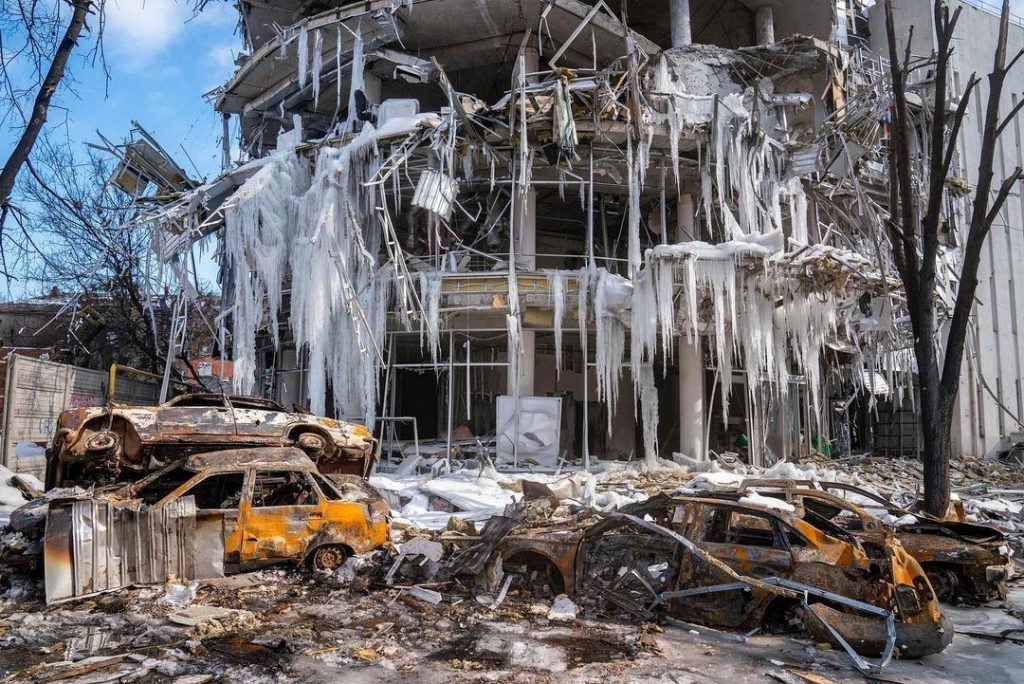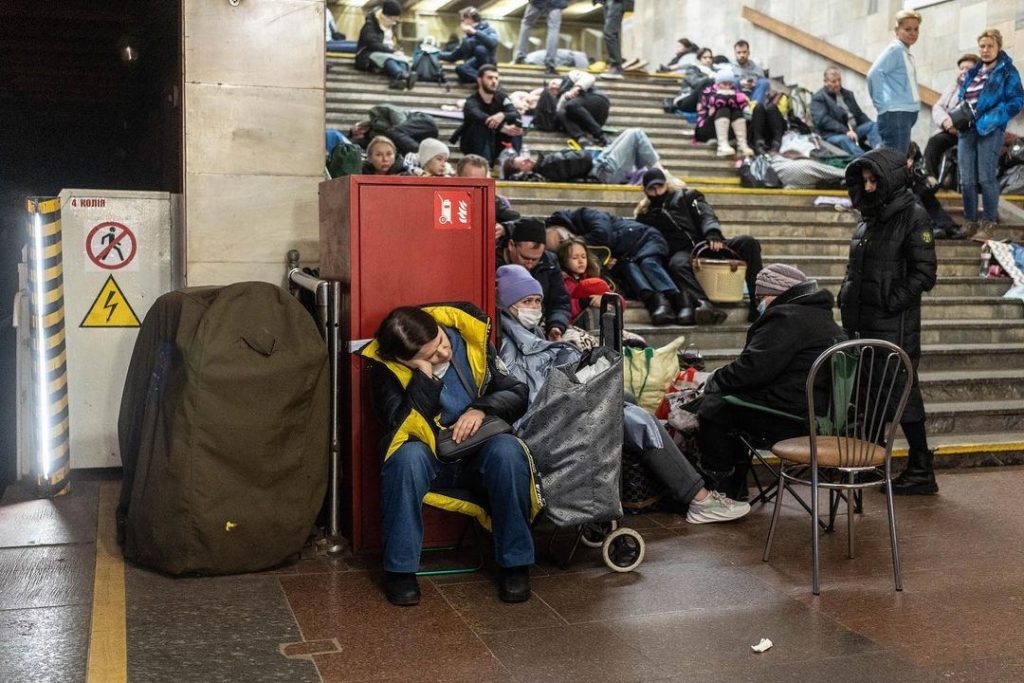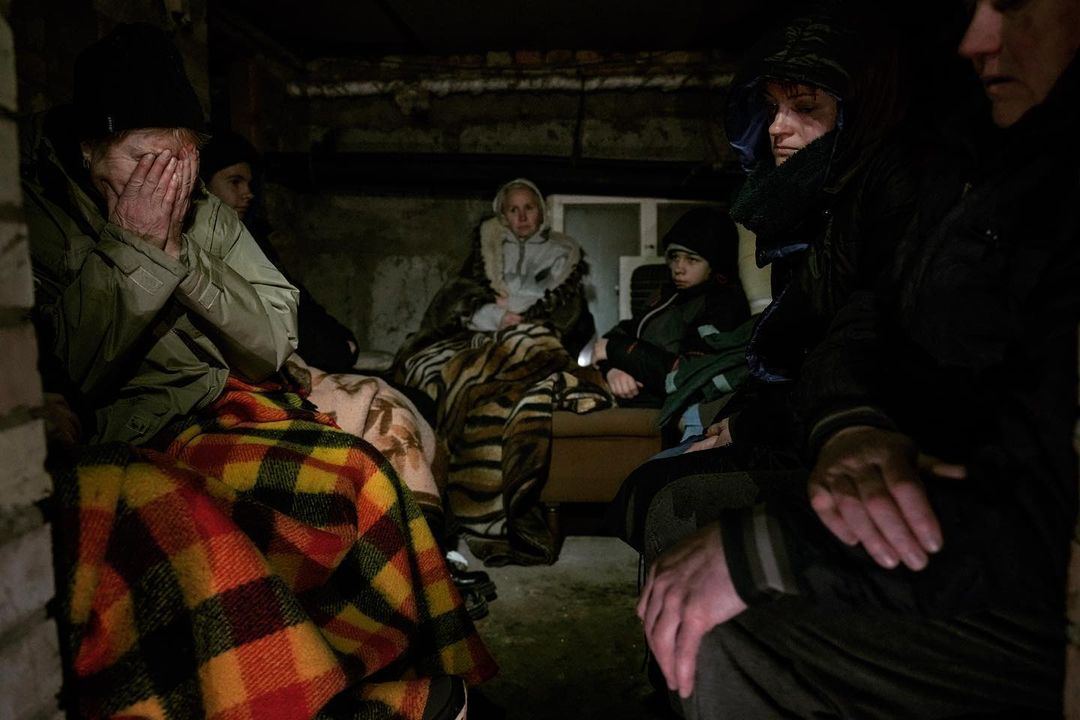The full-scale war on the part of the Russian Federation (RF) in Ukraine on February 24, 2022, significantly affected the implementation of the REAct system. In particular, it affected the work of documentaries in the regions, mechanisms of interaction with clients, customer needs, and the implementation of the appropriate response. An additional category of people has emerged in the REAct system as a risk group assisted by the Project – refugees, which include both internally displaced persons (IDPs) and those who have been forced to move abroad.
Prior to the armed aggression, the REAct project operated in 18 regions of the country. However, so far some of the documentaries from the most dangerous regions have had to travel to other cities in Ukraine or abroad. Among them are most documentaries and coordinators of Mykolaiv, Kharkiv, Kyiv, Chernihiv, and Zaporizhia regions. Some continue to stay in Ukraine and serve in the Armed Forces of Ukraine or the Territorial Defense, some volunteer, help internally displaced persons, and accompany humanitarian aid.

Currently, most clients’ inquiries concern the inability to receive vital treatment in time, or obstacles to obtaining it at a new location (SMT, ART, anti-TB drugs), issues of recovery/conclusion of declarations with a family doctor, difficulties in obtaining temporary housing, the need for an evacuation from the hottest spots, barriers to receiving other services against the background of temporary job loss.
Interaction with clients is mostly online and by phone, but the working hours of documentaries have increased during the day. In urgent cases of clients and due to the limitations of martial law, in some cases, there is also direct support for the client in resolving his case. Documentaries point out some circumstances that sometimes complicate or prolong the process of resolving clients’ cases. Among them: reduced time for receiving specialists in social services and hospitals, temporary cessation of services to individual specialists and institutions, and re-profiling the activities of partner organizations.
Starting from March 3, 2022, Kherson is under blockade by Russian troops with all the logical consequences: lack of supply of food and medicine, the danger of movement in the city, inability to move around the region, power outages, and Internet communications. Currently, all work of REAct documentaries in this area is carried out exclusively remotely. Among the services provided: are psychological support, initial legal advice, and social support. Due to the remote format of the work, it is currently not possible to provide assistance to applicants in cases of humanitarian need, namely food or essential medicines.
“Due to frequent shelling and poor quality or sometimes no communication at all, it is not always possible to provide assistance and therefore the applicant’s situation may worsen”, – said Kutsenko Volodymyr, coordinator in the Kherson region.
At the level of Kherson oblast, the work of representatives of state institutions with key groups is completely absent due to the occupation and blockade of settlements in the region. However, in the city, the work continues in an active and effective format.
The number of appeals from citizens has increased significantly since the beginning of the war in the Kherson region. This applies to all categories of the population without exception. Appeals are usually made on issues such as the need for food; the need to purchase drugs, undergo treatment; psychological support; social benefits; the possibility of evacuation; compensation for damage caused in connection with the start of full-scale hostilities, and armed aggression directly in the Kherson region.
Currently, due to a lack of communication, it is not possible to obtain information on the status of the Project in Chernihiv. However, it is known that a number of documentaries left the city and went abroad.
In the Kyiv region, the work was adapted to the real conditions of the war. Clients turn to documentaries by phone or messenger. Cases of violation of rights are resolved through consultations, referral of clients to friendly specialists, and sending appropriate letters to government agencies.
“It is difficult to work in these conditions because the laws of war are in force. In some cases, human rights are restricted, as is the order in which cases of violations of rights are resolved, as priority is given to violations of the customs of war. Therefore, some cases that need to be resolved at the state level have been postponed until better times”, – said Ivan Viktorov, coordinator in Kyiv region.

Due to the occupation and blockade of Melitopol by Russian troops and the difficult situation in Zaporizhia, interaction with customers in these cities is also remote. Many appeals are received regarding access to ART, anti-tuberculosis treatment, SMT. However, representatives of public organizations try to meet the needs of clients in treatment by delivering drugs to patients and transporting patients to appropriate medical facilities. We also managed to establish cooperation with volunteers, through whom humanitarian aid is received and provided to Project clients.
In Odesa Oblast, documentaries noted that the war did not critically affect the Project work. NGOs continue to operate, with most social workers on site. Work in the Odessa region, as in other regions, is carried out mainly by telephone, calls are now received throughout the day and night. Personal meetings with clients and doctors are carried out as needed according to the situation in the city, due to restrictions on movement and changes in the schedule of sites. Clients are interested in whether the SMT will work, where to get ART, how to go abroad, and where to get treatment in another country. Currently, there is a problem with the drug in Odesa oblast (patients have had their dosages reduced), private websites have closed, and the state has been unable to accept new patients.
In Kryvyi Rih, some program activities of partner NGOs have been suspended to assist key groups in coordinating evacuations and meeting their urgent needs, including humanitarian aid. Most documentaries noted that the war made significant adjustments to the rhythm of life. However, some issues began to be addressed more quickly, and clients applying for the Project’s services became more responsible. The format of work and provision of services to the clients of the Project remained almost unchanged. In addition, the documentaries noted that war disciplines and awakens humanity. For example, the number of cases related to stigma and discrimination against PWUD, SP, MSM, and PLHIV by health workers has decreased.
In Ternopil there is anxiety and depression among both the team and customers. Most often, there are appeals from SMT clients (mostly from Kyiv) who received drugs at their own expense, and now doctors in Ternopil do not want to accept them for government programs and send them to other regions, explaining that their clients do not have enough drugs.
“In such a difficult time, we want to pay full and as much attention as possible to everyone who asks for help and to be useful. The priority is just a kind word and a friendly attitude to those who need it”, – Kozaretska Tetyana, coordinator in Ternopil region.
In the Ivano-Frankivsk region, work has increased much since the beginning of the war due to the provision of services to people who have been forced to leave their homes and currently live in the region. All work went into 24/7 mode. There are various requests from community representatives: from requests for food and medicine to consultations on going abroad and receiving ART or SMT both abroad and in the region. If the cases occur in other oblasts or districts, they try to refer the person to social workers nearby and provide telephone consultations. In addition to the main work of support and assistance to clients, the work today is very similar to the work of hotlines or counseling centers. The documentaries note that communication with government agencies in Ivano-Frankivsk Oblast has deteriorated as many structures have now become focal points for IDPs. But doctors are understanding, trying to help more than before.
“The last case was addressed by a drug addict, who, according to him, was in Kyiv on the paid SMT website, and he does not know whether he was registered at all, in our region he was immediately accepted for the program,” said Svitlana Demyanchuk, coordinator in Ivano-Frankivsk. Frankivsk region.
Quite often in Ivano-Frankivsk oblast, there are complaints about violations of citizens’ rights regarding forced mobilization of HIV-infected and drug addicts to the Armed Forces of Ukraine; committing domestic violence against women living with HIV; failure to provide SMT in penitentiary institutions. Complaints are received from IDPs alleging that CNAP staff do not apply for monthly payments to adults and children when registering and obtaining an IDP certificate.
Despite the difficult working conditions today, the regional coordinators note that attention is paid to all people who seek help. It is important to organize work in detail in all directions in order to keep people alive, although sometimes it is very difficult to create safe conditions. It helps to support a large number of friends, colleagues, acquaintances, experts and volunteers in various fields. The work of the Project is currently very relevant and is in great demand among both clients in the region and among IDPs. Due to the high percentage of population migration, documentarians have to perform many additional functions.


